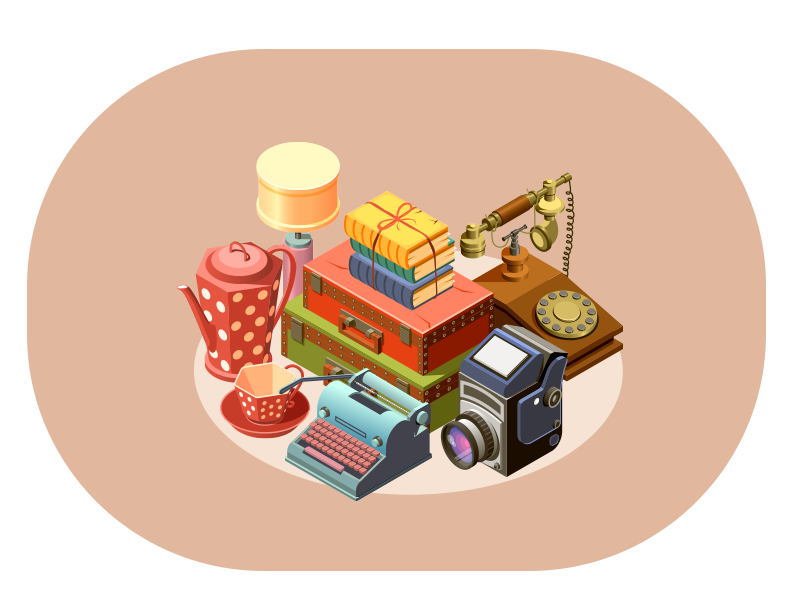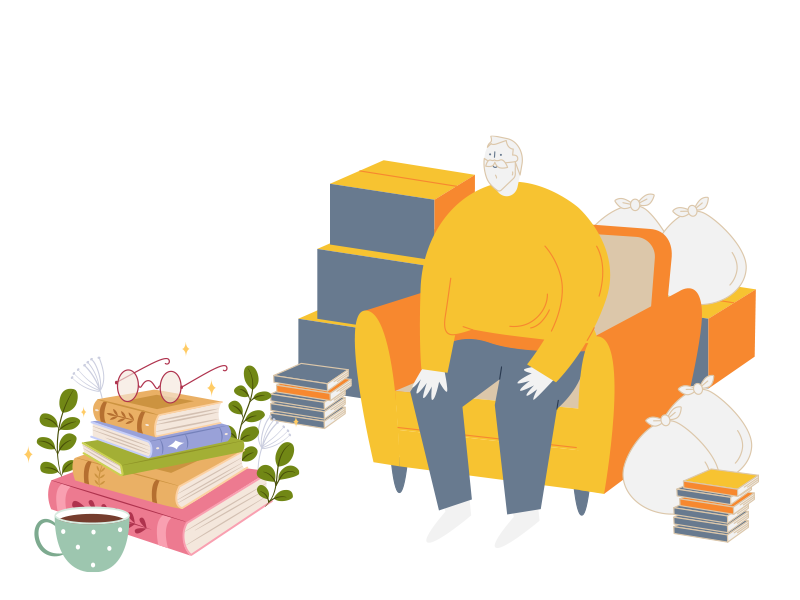How to Overcome Hoarding

Do you know someone who hoards items or animals? Perhaps you have a neighbor, friend, co-worker, or family member who finds it impossible to throw things away. In its most basic form, the problem called “hoarding disorder” refers to the inability to get rid of objects, or in some cases animals, that are no longer needed or are interfering with daily living. But, how to stop hoarding disorder can be a lot harder than it may seem at first glance.
It’s important to understand that “collecting” is not the same thing and does not require hoarding disorder treatment. The critical factor that makes the behavior is a problem is when the person keeps so many things that their home is hard to live in, or a sanitation problem develops.
What To Do
If you or someone you care about suffers from hoarding disorder, it’s important to get help for them as soon as possible. But, do you know how to help a hoarder? Don’t feel bad if you don’t know because many folks aren’t sure how to find hoarding self-help resources for their family or friends.
Additionally, the entire task of overcoming hoarding or figuring out how to stop hoarding in another person is an enormous challenge. There are many things you can do once you research the topic of hoarding disorder treatment. But remember that only a licensed counselor can offer long-lasting, effective remedies for people who need help on how to stop hoarding.
If you want to know how to stop hoarding or wish to learn more about how to help a hoarder you know and care about, the good news is that there are many things you can do. While no two situations are alike, consider the following suggestions for helping someone deal with a hoarding problem. Read through each one and explain the tactics to the person you know who needs help.
1. Use 20-Minute Time Intervals

Break the job of decluttering into small tasks. At first, no matter how much junk you are facing, commit to spending 20 minutes every day removing some of it. This strategy helps people realize that every small action solves their more significant problem.
Plus, by keeping the work sessions to just one-third of an hour per day, no one will be overwhelmed with the effort.
2. Use the “One Year” Rule
When going through accumulated junk like old clothes, boxes of papers, appliances, knick-knacks, and sports equipment, make a rule to throw away or donate anything that you have not personally used within the prior 12 months. Invoking the one-year rule is an efficient, realistic way to eliminate items that have little value in your life.
3. Use the Four-Box Strategy3. Use the Four-Box Strategy
When you undertake to begin the decluttering process, get four large boxes and label them accordingly: “Trash,” “Donations,” “Recycling,” and “Sell.” Be sure to put everything into one of those four boxes. It’s a valuable system for avoiding the urge, which everyone has at times, to toss all the junk into a gigantic garbage container and let the haulers take it all away.
The fact is that some “junk” is of value to others, especially to needy folks who have very little in the way of appliances, electronic equipment, clothing, and other everyday items. Logically, everything that you do not want should fit nicely into one of the four categories.
4. Don’t Be Shy About Getting Outside Help
If you live in a house that’s full to the brim with unwanted junk and clutter, the job of getting rid of it all can be a significant chore. Even if you are young and in excellent health, you might be facing many hours of strenuous labor. That’s why it’s a good idea to enlist the help of friends and loved ones to get the job done.
Consider asking someone to act as a supervisor or organizer of the job. You or the hoarder can point to items and identify them as trash, a for-sale item, a donation, or one that should be recycled. Many hoarders are surprised at how much cash they can earn by putting some of their used appliances and computer equipment up for sale on internet auction sites.
5. Start With the Easiest Rooms and Areas
Consider decluttering the most accessible spaces first to build momentum and get underway quickly. For example, maybe the hoarder has a small den that contains just a few extra boxes and full garbage bags that can be removed in a matter of minutes. If that’s the case, work on that room first.
Tackling the simplest areas gives you a sense of accomplishment and reinforces the good feeling of removing clutter and junk. Consider making a list of each home area that needs to be cleaned and beginning with the easiest ones, working up to the most challenging rooms.
How to stop hoarding: Getting Outside Help

Even if you do the five items listed above, it’s always wise to seek professional help overcoming hoarding. That’s because fully effective hoarding disorder treatment is best delivered by licensed therapists and people who are medical experts in the field. Never assume that the job is done because you help a friend clean up her home and rid it of clutter.
Knowing how to help a hoarder can help a lot, and you might even give the person a hoarding self-help book or pamphlet that explains the fundamental facts to them in a logical, reasonable way. For example, some people have tons, literally speaking, of junk and clutter in their homes.
Often, the first obvious step is to work with the hoarder to get rid of the unnecessary items. Professional cleaners do an excellent job of taking care of this initial step toward a long-term solution. Some cleaning agencies specialize in dealing with excessive build-up of clutter and offering hoarding self-help information to those who need it.
Why professional cleaners? Because sometimes, it’s not enough to know how to stop hoarding. In many cases, job one is to and safely get rid of the existing items. In homes where unsanitary or dangerous conditions exist, most non-professionals are not equipped or trained in removing hazardous items.
Professional cleaners who regularly deal with hoarding problems know what to do and have trained experts who can clean the area, remove the clutter, and disinfect the entire space.

About Jennifer Hanzlick
Clutter Trucker is a Denver-based hoarding clean-out company founded by Jennifer Hanzlick. Jennifer leveraged 15 years of corporate experience in to start the company in 2008. Her mission is to help and educate individuals and their loved ones who have hoarding disorder. A featured speaker at Ted X Boulder, Jennifer works directly with community and non-profit organizations to boost public awareness about the condition. To that end, she founded the Colorado Hoarding Task Force in 2015.
 720-982-7856
720-982-7856



